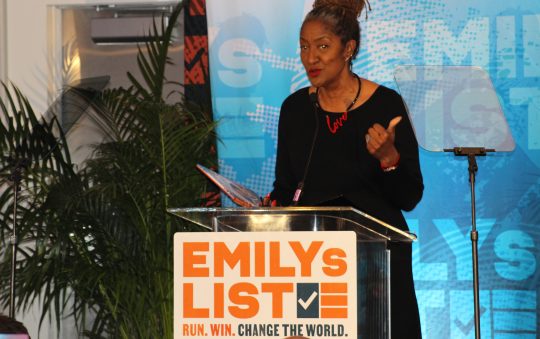
As most of the country remains inside, Black Americans find new ways to wear their hair long-term.
I was five years old when I first realized I was Black. I didn’t realize because of my skin color, I realized because of my hair. I dreaded mornings throughout my childhood as my mom made her way through my hair with a comb. Over the years, I learned how to love my hair. Ten days ago, I stopped loving my hair as much. The dread I felt as a child returned since having to remain inside.
Social distancing has made hair care incredibly difficult. The worst thing for Black hair is lack of moisture. Running low on supplies while having to stay in a confined space causes my hair to transform into a large frizz ball like in the short film “Hair Love.” Now that beauty shops and hair care stores are closed, my hair has become a bunch of frizzy puffs. Before living in quarantine, I had mastered my curl pattern. I was two years into going natural, and was finally confident in wearing my hair short. I knew the right amount of water to apply, and what to wear at night to keep my curls. Now, I am running low on curl pudding, spray, and apple cider vinegar. I ration my shampoo and conditioner, and fear what will happen if I run out. My hair has already produce flakes of dandruff, resulting in itching. The luscious curls that streamed from my head just two weeks ago have grown into a field of dry knots.
I have a few options when it comes to hair care living in the age of quarantine. I have considered just chopping off all of my hair. For men, it’s more common to just chop off all their hair and wear a nice fade. For women, longer hair is seen as more attractive. Extensions and long curls require the use of a lot of product, and I refuse to risk my life to look good amidst a pandemic. Many African-Americans are getting braids because they last up to three months. Individual braids can take up to seven hours, have to be sprayed, and need to be taken out by hand. I could get braids, but from what it sounds like, this quarantine will last a lot longer than three months. I don’t know if I will have access to ordering hair and supplies to continue getting braids, and I don’t know how to do them myself.
My best bet is to keep my hair the way it is. I should not be concerned about whether my neighbors approve of my hair when I break the stay at home order to walk down the street. I should not worry about whether my roommates will judge me for going back to my roots and wearing boxed braids, bantu knots, or frizzy hair with leftover spray. We are living in a state of crisis, and food and shelter should be my primary concerns.
But it’s fun to think about my hair, because it serves as a distraction from uncertainty about the future. I may not have hair supplies in the coming months. I may not get to think about my hair, at all. Having the option to worry about my hair is a privilege that I’ve taken for granted my entire life. If it weren’t for the coronavirus pandemic, I wouldn’t recognize the many privileges I have, like the option to choose how I wear my hair.







